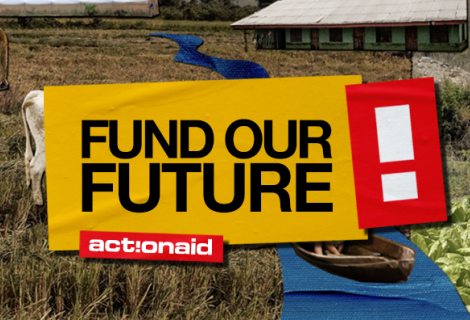
PRESS RELEASE
The causes fuelling the climate crisis are receiving an annual average of 20 times more financing than the solutions, new groundbreaking report by ActionAid reveals
The causes fuelling the climate crisis are receiving an annual average of 20 times more financing than the solutions, new groundbreaking report by ActionAid reveals
• Groundbreaking new report shows the fossil fuel and industrial agriculture industries in the Global South are receiving an annual average of 20 times more financing from banks than governments are receiving for climate solutions.
• Banks have put $3.2 trillion towards the expansion of fossil fuels since the Paris Agreement, with $370 billion being funnelled into the second major cause of climate change, industrial agriculture.
A new report reveals for the first time that the world’s banks including HSBC, Citigroup and Barclays are channelling an astounding 20 times more finance into the major causes of climate change than governments in the Global South are receiving as funding for climate solutions.
How the Finance Flows: the banks fuelling the climate crisis shows that bank financing provided to the fossil fuel industry in the Global South reached an estimated US$3.2 trillion in the seven years since the Paris Agreement on Climate Change was adopted, with US$370 billion provided to the largest industrial agriculture companies operating in the Global South.
The report found the top banks from each region funding fossils fuels and industrial agriculture in the Global South were:
- In Europe: HSBC, BNP Paribas, Societe Generale, Barclays.
- In the Americas: Citibank, JPMorgan Chase, Bank of America
- In Asia: Industrial and Commercial Bank of China, China CITIC Bank, Bank of China and Mitsubishi UFJ Financial
The largest recipient of industrial agriculture financing in the Global South is Bayer which has received an estimated US$20.6 billion in financing for its industrial agriculture operations in the Global South since 2016. Bayer – which owns the infamous biotechnology company once known as Monsanto - is the world’s second largest producer of agrochemicals. The fertilisers, pesticides and deforestation associated with Bayer’s products are major contributors to the greenhouse gas emissions that cause climate change.